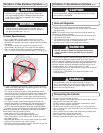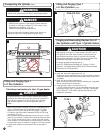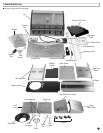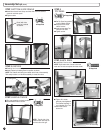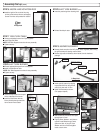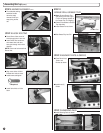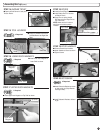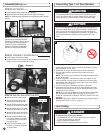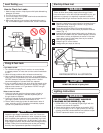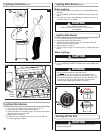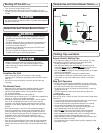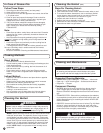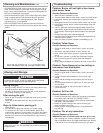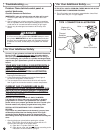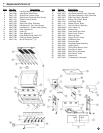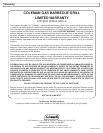Special offers from our partners!

Find Replacement BBQ Parts for 20,308 Models. Repair your BBQ today.
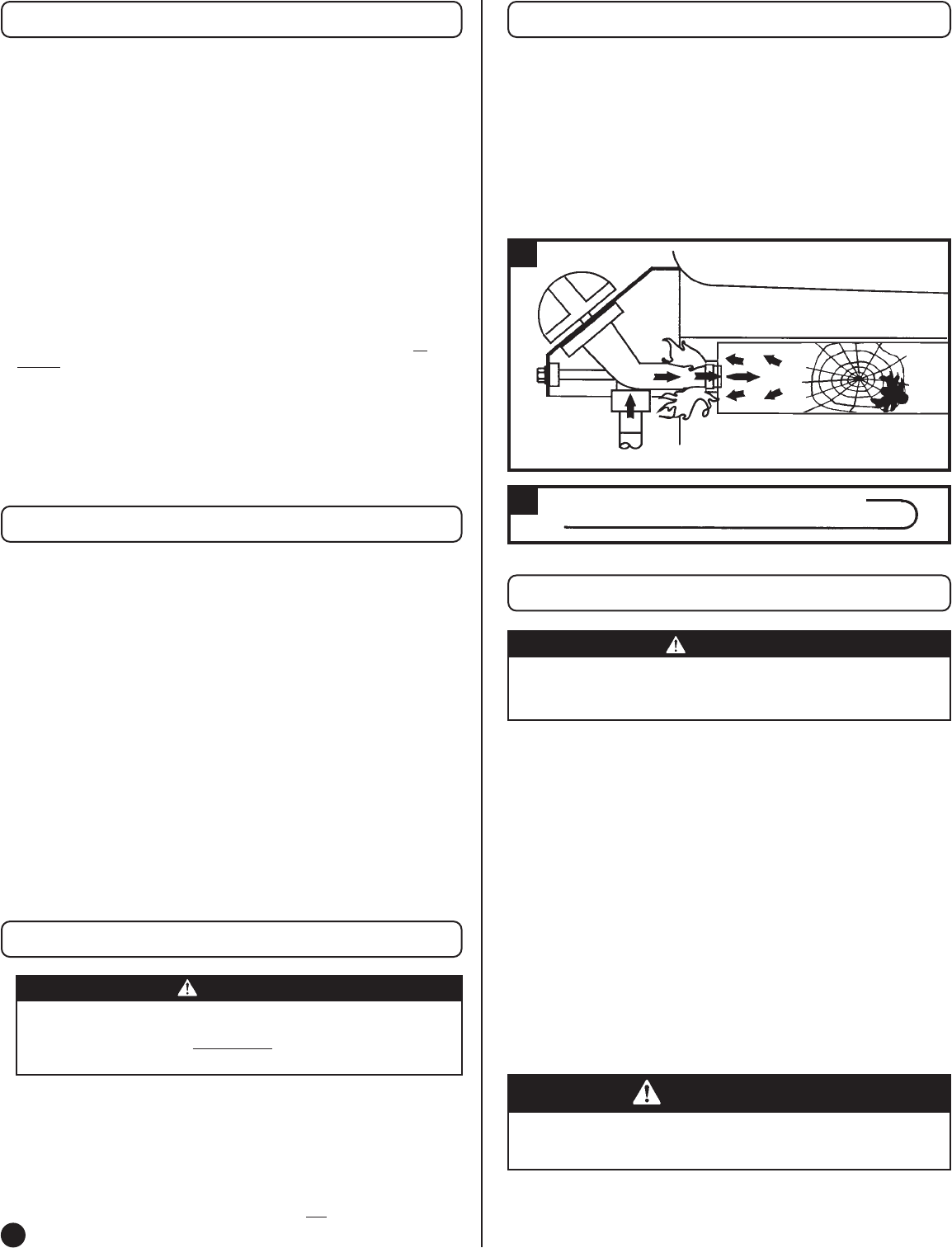
16
DANGER
NEVER attempt to operate your grill without orifices in the
valves. A serious and immediate fire hazard would result.
Steps For Cleaning Venturi:
1. Remove burner from grill bottom.
2. Look inside lower end of venturi tubes for nests, webs or mud.
3. To remove the above obstructions, use an accessory flexible
venturi brush or bend a small hook on one end of a 20-inch-
long flexible wire such as the one shown in Fig. 23.
4. Inspect and clean the burner if needed.
5. Replace the burner assembly into the grill.
6. Make sure the valve orifices are inside the venturi tubes.
7. Secure burner back into grill bottom.
22
23
Direct Method:
• The heat source is directly below the food.
•
Use for browning meat or cooking hot dogs and hamburgers,
but
check food frequently.
• Use for skillet and stir-fry cooking, but limit the amount of oil
and heat to be used.
• Cook roasts, turkey or duck on low heat. Place meat with
water in foil pan with corrugated bottom. Replenish water as
needed.
Indirect Method:
• Light only one side of the burner and place food on opposite
side for cooking.
• Allows food to cook at lower temperatures which increases
tenderness and reduces grease flare-ups.
• Good method of cooking foods that burn easily (vegetables,
fish, etc.).
• Cook casseroles in ovenware or foil pans much like
cooking in a conventional oven.
• Also try placing a pan of water above the lit burner side to
help meat retain its juices. Replenish water as needed.
Cooking Methods
WARNING
Spiders’ nests or wasps’ mud inside the venturi may cause fire
at valve. If a fire occurs, immediately
turn off gas supply at L.P.
cylinder valve (see representative illustration in Fig. 22).
Cleaning the Venturi
Note: Spiders and small insects can spin webs and build nests
inside the venturi tubes.This especially occurs in late summer
and fall before frost when spiders are most active. These nests
can obstruct gas flow and cause a fire in and around the burner
valves. Such a fire can cause operator injury and serious dam-
age to the grill. To help prevent a blockage and ensure full heat
output, clean and inspect venturi tubes often (once or twice a
month). NOTE: Water or air pressure will not
normally clear a
spider web.
CAUTION
All cleaning and maintenance should be done only when
grill is cool & with the fuel supply turned off at the cylinder.
Cleaning and Maintenance
Suggested Cleaning Materials:
• Mild dishwashing liquid detergent • Hot water • Wire brush
• Paper clip • Nylon cleaning pad • Soft brass-bristle brush
• Putty knife • Scraper
Component Cleaning:
• BURNER: Wire-brush loose corrosion from burner exterior.
Clean clogged gas port holes with an opened paper clip.
Replace corroded or damaged burners that would emit excess
gas.
• STAINLESS STEEL: Clean with any multipurpose (low abrasive,
no phosphorous) metal polish or stainless steel polish and a soft
cloth to prevent marring or scratching the surface. NEVER USE
OVEN CLEANER!
• ORIFICES: Unscrew orifices from rear of valves (Fig. 24). Wash
orifices in solvent and blow air through the small end holes.
Carefully replace the orifices in valve when they are dry. Make
certain that orifices are tightly reassembled.
Follow These Steps:
1. Shut off gas at the burner valve(s) and stay away!
2. Allow the fire to burn itself out.
3. Once the fire is out and the appliance has cooled, shut off the
L.P. cylinder valve.
4. Clean all parts and inspect for damage. Parts to check for
damage are the L.P. cylinder, cylinder valve, regulator, gas
supply hose, burner valve(s) and burner(s).
5. If any of the above mentioned components are damaged,
seek replacement from Coleman before operating the grill
again. Locate your nearest service center by calling
1-800-835-3278.
Note:
• Some flare-up adds a smoky flavor and sears food. Excessive
grease fires can cause a potentially hazardous situation and
damage the grill.
• Avoid excessive flare-ups by preheating the grill with the lid
closed for 5 minutes on high setting to burn off grease from
previous cooking.
• Cook with lid down and continually monitor cooking food to
avoid grease fires and flare-ups.
• Trimming excess fat from meat will reduce grease fires and
flare-ups. Cook fatty meat in smaller amounts over indirect
heat on low setting.
• Be sure to follow the “Cleaning and Maintenance Instructions.”
In Case of Grease Fire
Cleaning the Venturi
(cont.)



